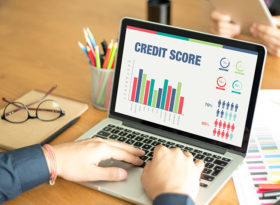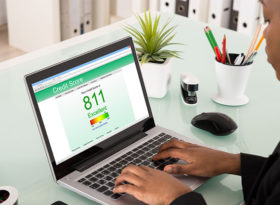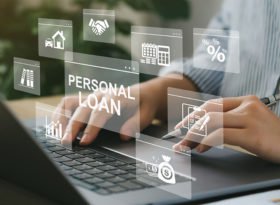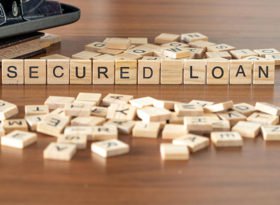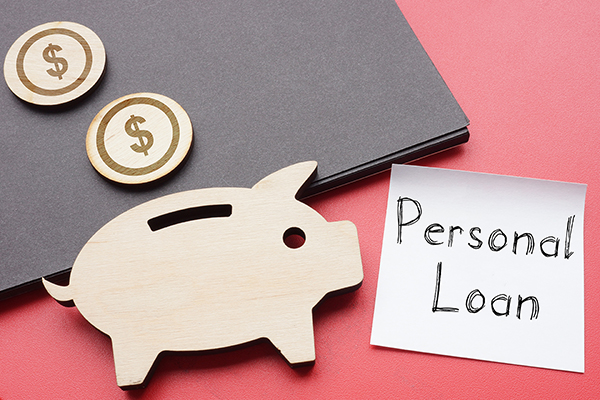 Short Term Loans
Short Term Loans
What is a personal loan and how does it work? A full guide
If unexpected expenses are troubling you, taking out a personal loan can provide you some much-needed relief. But before you take this step, it’s important to understand what is a personal loan. Read on to learn how do personal loans work, and how you can get one in Australia.
What is an unsecured personal loan?
A personal loan is a type of loan where you borrow a set amount of money from a bank, credit union, or other lender to be used for a specific purpose and you repay the loan in equal instalments over a set length of time.
Personal loans can be used for all manner of purposes such as home renovations, holidays, vacations, weddings, unexpected expenses, debt consolidation, debt consolidation and any worthwhile purpose.
A fee or Interest is charged and included in the periodic repayments.
How do you obtain a personal loan?
You can apply for a personal loan through a lender like a bank, a credit union, or any other licensed credit provider. Be sure to check the lender holds an Australian Credit Licence.
You’ll need to submit personal and financial information so that your application can be assessed. Factors such as available discretionary income, credit score and history, etc.
You need to carefully check the loan terms, before you offer to borrow from that lender. If approved, you will receive the funds, usually paid into your bank account, and you must pay your agreed repayments on time. Repayments are often by direct debit from your bank account so make sure your bank balance is sufficient to meet the repayments.
Secured vs unsecured personal loans
Personal loans can be both secured and unsecured. A secured personal means that a specific item of personal property secures the loan and if repayments are not met, that item can be taken by the lender and sold.
An unsecured loan usually charge a higher rate of interest. Interest rate may vary depending on the assessed credit risk score. If you are wondering a credit score of 800 and above will get you the lowest interest rate on your personal loan.
An unsecured personal loan may be the option if you are borrowing money without risking your assets; if you don’t have assets; or if you do not want to risk them as security.
Credit24: unsecured personal loans
Fixed or variable interest rate
A fixed-interest personal loan means the interest rate will not change during the term of the loan.
With a variable interest rate loan, the interest rate can change and might increase or decrease during the loan term. Changes are usually linked to changes in the cost of the lender’s own borrowings. To make up for any difference if the loan is repaid early, such as refinancing, variable interest loans usually incur break costs when repaid early.⁴
Credit24: variable interest personal loans
Pros and cons of personal loans
Here are a few reasons why personal loans can be suitable for your purpose:
- Flexibility: It can be used for any worthwhile purpose.
- Fixed repayment term: It can provide a predictable repayment schedule with a clear end date.
- Quick access: Once approved, the funds can be disbursed quickly.
- Debt consolidation: You can use personal loans to consolidate you’re a number of loans into one loan.⁵
However, here `are some reasons why a personal loan may not be suitable for what you need:
- Interest rates: You may have to pay higher interest rates if you want an unsecured loan or if have a lower credit score.
- Impact on credit score: If you miss repayments, it can reduce your credit score.
- Qualification criteria: The approval of a personal loan depends on several factors such as creditworthiness, income, and financial stability, which by Responsible Lending laws need to be assessed by lenders.
Overborrowing: Due to the ease of access to personal loans, you may be tempted to borrow more than what you can afford to repay without reducing your current spending habits. Do not over commit.
How personal loans affect credit score
If your lender is contributing to comprehensive credt reporting, maintaining repayments can help you build a good credit history and improve your credit score.
If however you miss repayments, it’ll hurt your credit score. Applying for a personal loan will also appear on your credit history, even if the loan is not approved, and could result in a drop in your credit score.
Personal loans vs cash advance loans
Let’s take a look at the differences between a personal loan and a cash advance loan and Buy Now Pay Later lending:
| Basis of Difference | Personal Loan | Cash Advance | Buy Now Pay Later |
| Duration | Long-term | Short-term | Short-term |
| Secured/Unsecured | Both | Unsecured loans | Unsecured |
| Interest Rate | Both | Typically no interest rate but high cost | No interest paid by consumer however, if repayments not met high fees charged. Commission (percentage of purchase price of the goods or service) is paid by the merchant to the BNPL lender. The merchant may have incorporated into the price charged. |
| Repayment | Fixed repayment terms | Short repayment terms | Very short repayment terms. |
| Purpose | General financial needs, debt consolidation, personal expenses | Emergency cash needs, unexpected expenses | Only can be used by merchants who accept BNPL |
| Credit Check | By law, a credit check. Approval based on borrower’s creditworthiness, disposable income, credit mix, credit score, etc. | No credit check. | Limited credit assessment |
Getting a personal loan: step by step
If you’re interested in taking out a personal loan, here are the steps you should follow:
- Determine your loan needs: Start with identifying how much amount you need and which type of loan—secured or unsecured—suits you best based on your financial situation.
- Compare the total cost of loan providers: Compare various licensed lenders to find the best terms and interest rates for you.
- Check your credit score: Know your credit score before applying for a personal loan. A higher credit score will help you chose the lender which can provide the best loan terms, interest rates and fees.
- Understand the associated fees: Review all the potential fees associated with the personal loan to avoid any surprises/hidden charges during the borrowing process.
- Understand your repayment terms: Your repayment terms include the loan duration, monthly instalment amounts, and total interest rate. Based on this information, calculate your total cost of the loan over its term. This will help you determine whether the loan fits your current and future financial capabilities or not.
- Gather required documents: Prepare for necessary documentation such as your proof of income, employment details, identity card, etc. for the loan application process. You need to keep them ready for a faster loan approval.
- Submit loan application: Once you have the documents ready, now you can submit the loan application to your selected lender. At this step, you can be asked to provide additional information requested by the lender. Also, be ready for any credit check that will be initiated by the lender.
- Review loan terms: If your application is approved, your lender will provide you with copies of the loan contract. Make sure you read and understand all the terms and conditions. If you have any doubts or queries, ask the lender for clarification.
- Timely repayment: Make timely monthly payments as per the agreed loan terms. It’ll help you build a positive credit history and avoid late fees.
Lenders generally charge different types of fees on the loans. Here are a few common ones⁶:
| Types of fees | Average Amount | Typical Maximum Amount |
| Application fees/Establishment fees | $270 | $600 |
| Ongoing annual fees | $1 | $110 |
| Ongoing Monthly fees | $2 | $15 |
| Other fees | $5 | $400 |
| Documentation fees | $5 | $125 |
| Early repayment fees | $100 | $300 |
| Missed repayment fees | $25 | $50 |
Tips to pay off your personal loan
If you’re getting a personal loan, it’s important to make sure that you have a solid plan to pay back the loan. It’s also important to understand the loan terms so you know when the instalments are due to avoid missing payments and late fees. To pay off your loan on time, you can consider setting up automatic payments. This can help you avoid missing due dates and maintain a positive credit history.
How do I apply for a personal loan with Credit24
Applying for a Credit24 personal loan is a very convenient, quick and easy process. It only takes a few minutes and you’ll get a response on your application within a day. All you have to do is open and account and compete the on-line application journey. Just follow the application prompts, submit the required documents, and submit your application to borrow.
Once your application is reviewed and if approved, the loan amount will be credited to your account within minutes. Some other benefits of applying for a personal loan with Credit 24 are:
- Easy online application
- Borrow any amount between $500 and $10,000
- Flexible repayment options
- Repayment terms are fixed upfront
- Quick response to the application
- Same-day payments after approval
Credit24 holds an Australian Credit Licence issued by and regulated by the government Australian Securities & Investments Commission (ASIC). services.
Learn more about Credit24 personal loans
Disclaimer:
IPF Digital Australia Pty Ltd, trading as Credit24, ABN 59 130 894 405. Australian Credit Licence 422839. The information in this article is of general nature and does not take into consideration your objectives, financial situation or needs. Lending criteria, fees and charges apply. For more information about our products, eligibility criteria and terms and conditions, please visit www.credit24.com.au.
Sources:
- Moneysmart: https://moneysmart.gov.au/
- NAB, Tips to improve your creditworthiness
- Savings.com.au, How to get and apply for a car loan
- Plenti, What information do I need to apply for a car loan?
- Money.com.au, Compare Low Doc Car Loans & Rates

